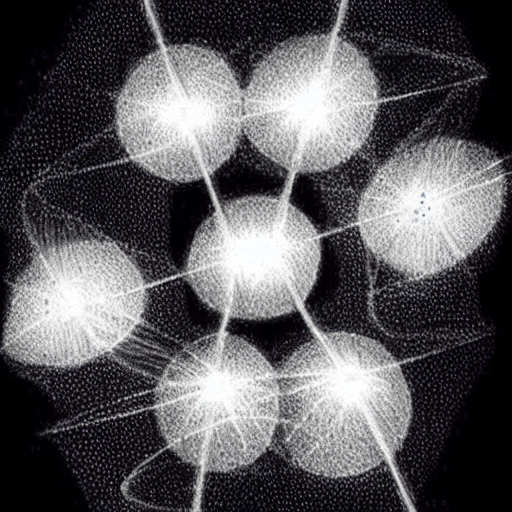Mastering Atomic Notes: Unlock Efficiency and Knowledge Management
Discover the power of atomic notes with this comprehensive guide. Learn how to streamline your note-taking process, enhance learning efficiency, and build a robust personal knowledge management system.

In this article, I discuss the value of atomic notes. What they are, and why they matter in the grand scheme of Personal Knowledge Management things.
Introduction
People who dive into Personal Knowledge Management often try to go "hardcore" and record everything they stumble upon. While it may feel satisfying at first, they sooner or later realize that it's vain. In practice, they're mostly having fun hoarding information.
They write lengthy notes, for instance, complete notes from university classes, and don't think much about the meaning of what they're capturing and how it fits with the rest of their knowledge base. When they write their own ideas down (which they don't do nearly enough), they follow the same approach: they create lengthy notes that are mostly disconnected from the other ideas in their knowledge base. They're missing out!
I personally feel like much shorter notes enable creating much more valuable knowledge bases, as opposed to lengthy notes that may be linked with many more notes but feel way more "diffuse". To me, the shorter a note is, the more useful it is (generally speaking). In the rest of this article, I want to argue about this idea.
What are atomic notes?
Atomic notes focus on a single idea or concept, in a clear and concise way. Atomic notes are like atoms: indivisible. They're short by definition. Short is of course subjective, but I would argue that an atomic note shouldn't be longer than half an A4 page.
Focusing on a single idea means that once you touch on a different one, you need to branch out and create a new linked note.
To me, atomic notes are like old-school 280 characters tweets: short and hopefully clear and focused.
The value of atomic notes
Forcing yourself to create shorter notes is a great way to increase the "link-ability" of your notes, and consequently the value of your knowledge base.

Approaching note-taking and note-making like this enables you to easily categorize and organize the knowledge you capture. Less is more!
When a note focuses on a single idea/concept, it's also much easier to tag it. In contrast, a really long note is harder to tag because it often touches on different ideas. Longer notes tend to include many tags that don't necessarily match all the content. With shorter notes, tags are better aligned with the content. This enables much more efficient searches, thus making it easier to find the information you need when you need it.
Focusing on a single idea/concept at a time is also a great way to make the content more understandable and easier to remember. Whenever I write atomic notes, I have a much easier time remembering what I wrote and why I linked notes together. In addition, you can defer the exploration of related ideas (those you need to branch out to) to a later time. This enables laser focus while writing, leading to better thinking and higher-quality notes.
Another benefit of atomic notes is the fact that they can be combined more easily, which can help a lot with creativity and exploration. Whenever you go back to an atomic note, you can try and think about the related ideas you still need to explore, and how they connect with it. Thus, atomic notes are enablers for active/exploratory learning.

Atomic notes are usually easier to review/correct, which can be very useful when accumulating a lot of knowledge over time.
Just like with code, atomic notes also enable better collaboration.
Finally, creating atomic notes doesn't prevent creating much larger bodies of text. Atomic notes can be combined in a myriad of ways.
Conclusion
Atomic notes enable a divide-and-conquer approach for note-taking and note-making. Next time you open your favorite note-taking tool, do consider writing atomic notes.
That's it for today! ✨
About Sébastien
I'm Sébastien Dubois, and I'm on a mission to help knowledge workers escape information overload. After 20+ years in IT and seeing too many brilliant minds drowning in digital chaos, I've decided to help people build systems that actually work. Through the Knowii Community, my courses, products & services and my Website, I share practical and battle-tested systems. You can follow me on X 🐦 and on BlueSky 🦋.
I am an author, founder, and coach. I write books and articles about Knowledge Work, Personal Knowledge Management, Note-taking, Lifelong Learning, Personal Organization, and Zen Productivity. I also craft lovely digital products.
If you want to follow my work, then become a member and join our community.
Ready to get to the next level?
If you're tired of information overwhelm and ready to build a reliable knowledge system:
- 🎯 Join Knowii and get access to my complete knowledge transformation system
- 📚 Take the Course and Master Knowledge Management
- 🚀 Start with a Rock-solid System: the Obsidian Starter Kit
- 🦉 Get Personal Coaching: Work with me 1-on-1
- 🛒 Check out my other products and services. These will give you a rock-solid starting point for your note-taking and Knowledge Management efforts





